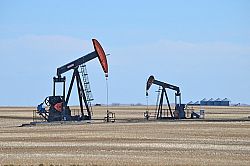

An oil drilling project in Surrey was granted planning permission in 2019. The oil wells were expected to produce 3.3 million tonnes of crude oil over 20 years. However, the Supreme Court has ruled that the planning application was missing a key detail; a decision that could have implications for future oil and gas projects.
Doubts were cast on the project when local campaigner Sarah Finch argued that the broader environmental impact of the project should have been taken into account. This includes the carbon emissions created when oil is burned following extraction. Under law, the environmental impact assessment (EIA) should identify, describe and assess the direct and indirect significant effects of a proposed development on issues such as the population, biodiversity, land, soil, water, climate, cultural heritage and the landscape.
In the case of the proposed oil drilling project, the EIA didn't consider downstream emissions, i.e. the emissions from burning the extracted oil. This is what lawyers acting on behalf of Ms Finch argued should have been the case. The Supreme Court agreed, in a three-to-two majority.
In his ruling, Lord Leggatt said "In my view, there was no basis on which the council could reasonably decide that it was not necessary to assess the combustion emissions."
"Given the agreed fact that all the oil produced would be refined, I see no reason why environmental impacts resulting from the process of refining oil should not in principle fall within the scope of the EIA for the extracting of oil."
Justice Leggatt added: "It is not disputed that these emissions, which can easily be quantified, will have a significant impact on climate. The only issue is whether the combustion emissions are effects of the project at all. It seems plain to me that they are."
As a result of the ruling, all those proposing new oil projects will likely have to take downstream emissions into consideration when preparing their EIA. In the case of Surrey oil drilling project, Friends of the Earth has estimated that burning the oil that could have potentially been extracted would have released over 10 million tonnes of carbon dioxide.
UK oil and gas plc, which submitted the planning application, said that they found the ruling "perplexing" but has said they will amend their application. They also added that their recent focus has been on hydrogen storage rather than oil and gas, but would make sure that future production will fall below the levels at which an EIA is needed.
This ruling ends a five year campaign run by Ms Finch on behalf of local residents, which was supported by Greenpeace and Friends of the Earth."I am absolutely over the moon to have won this important case" she said.
For more information, see the: